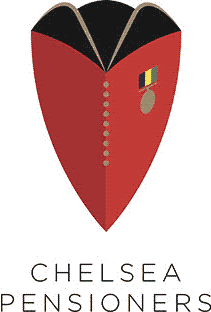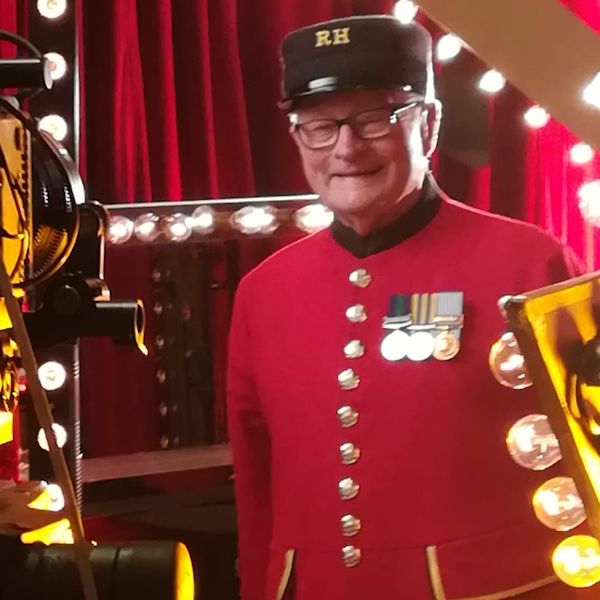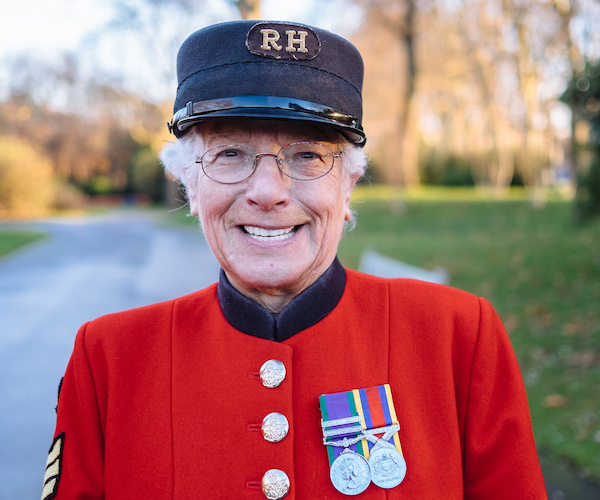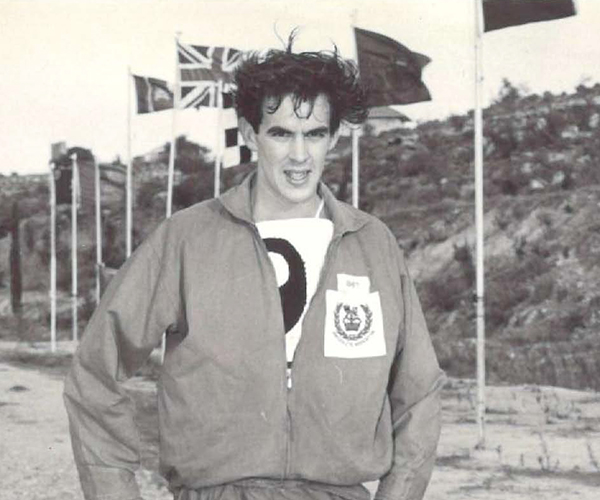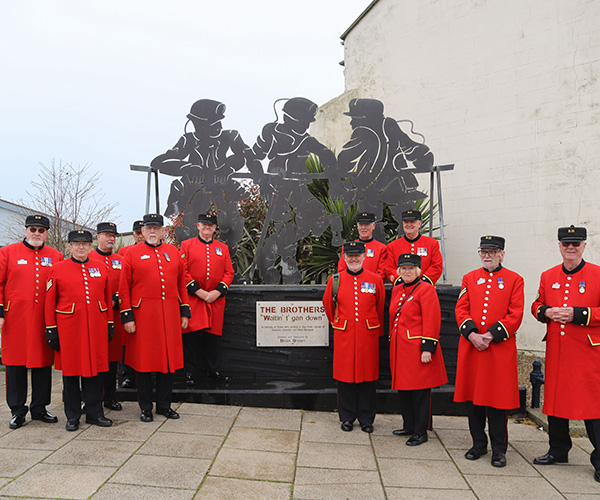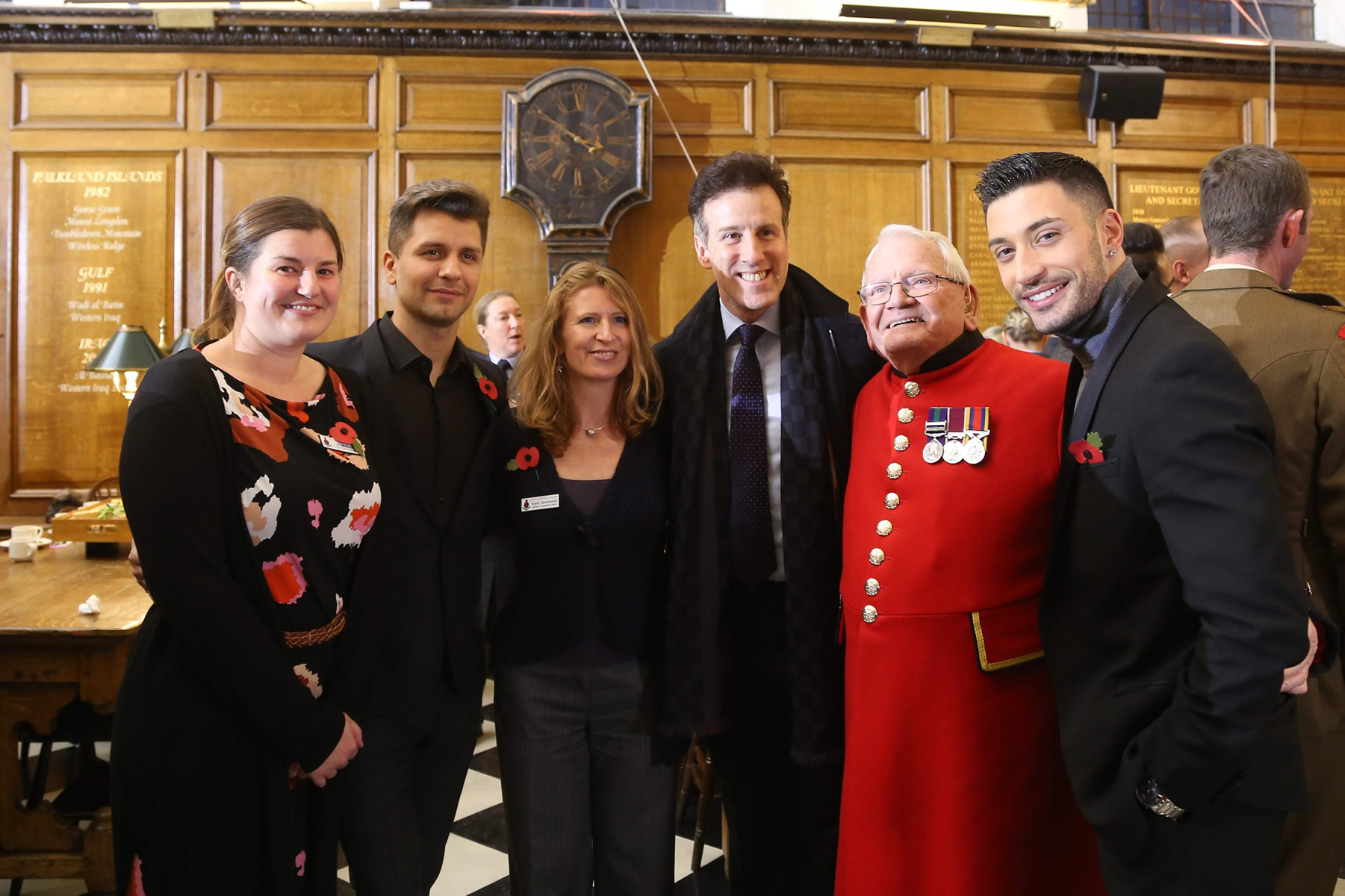
Meet Chelsea Pensioner Dewi Treharne
29th November 2019
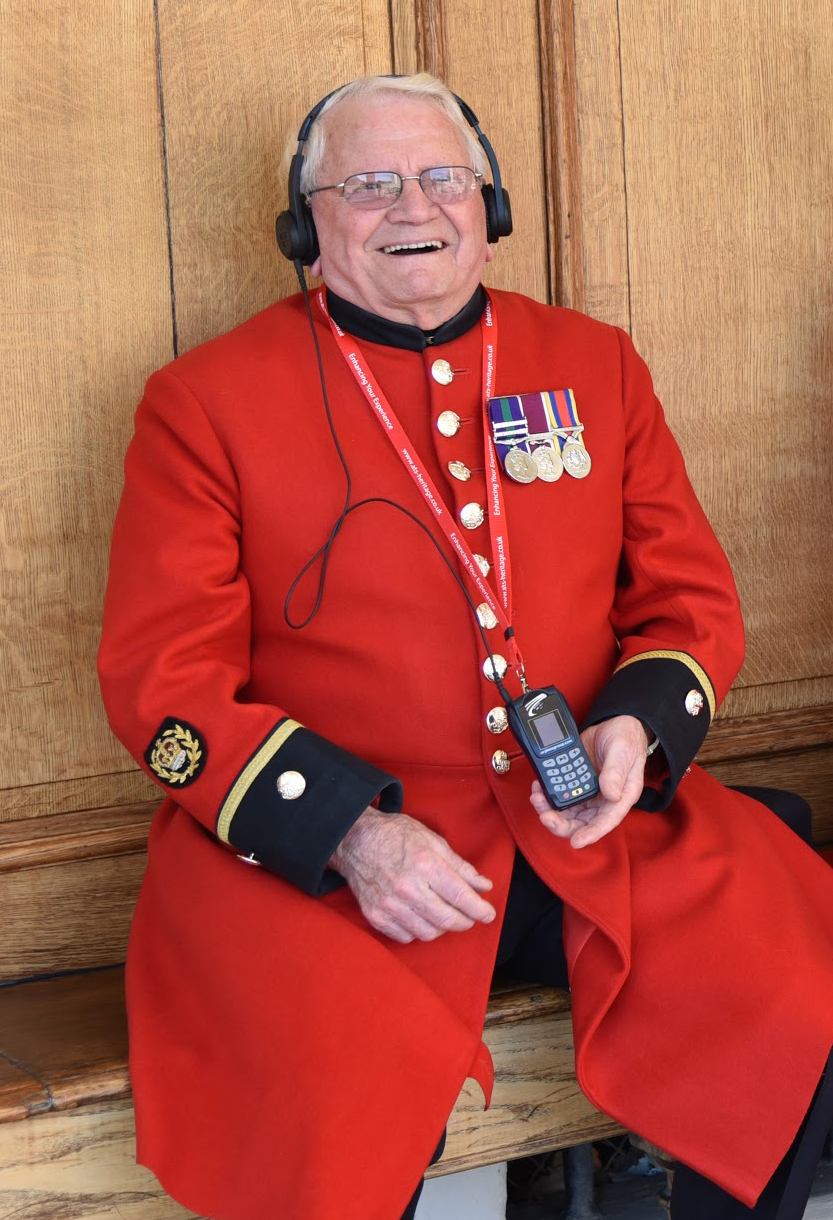
After leaving the regular Army, Dewi joined the Territorial Army, which he says, “helped him to settle into civilian life”. He became a Chelsea Pensioner in 2016 and says it was a “good decision”. He plays an active part in Royal Hospital life where he goes to the gym, sings in the choir, belongs to the bowls club and collects the post. He says:
“It reminds me of the Army, I like the camaraderie”.
Boy soldier and boxer
Dewi was born in the Welsh village of Trimsaran, Carmarthenshire and spent much of his childhood on his father’s farm. His first language was Welsh – which made it hard for him when he went to grammar school and was taught in English for the first time.
As a boy, Dewi had enjoyed the cadets, so he decided to join the Army. He went to the Army Apprentice school in Harrogate at the age of 15, where he ended up as a boy sergeant. Here he not only trained to become a radio mechanic, but represented the school at rugby and boxing. He went on to be an Army boxing champion, boxing against the Navy and Air Force and was an ISBA champion. He threw himself into Army life, despite the low wages:
“I was earning ten shillings and six for the first year – I’d spend it on cleaning kit, the cinema and sometimes beans and chips. There was still rationing then so the food wasn’t good – we’d have toast with no butter and the cocoa had no milk or sugar at break time.”
From Harrogate to Hilden
In January 1953, Dewi left Harrogate and was posted to Germany. “When I got to Dusseldorf, it was still pock-marked with bullet holes and they were rebuilding the station”, he remembers.
He was posted to a place called Hilden to join 2 divisional Signals regiment, from there he was posted to 22 Light AA Regiment, Royal Artillery, where he was the only member of the Royal Signals in an artillery regiment.
“They made me very welcome and I enjoyed playing rugby for the regiment. My work was repair and maintenance – headsets, radios and microphones. We were there to counter the threat of the Russians after the Iron Curtain went down in 1948 – preparing to defend Western Europe.”
Travelling the world
After about two and half years, Dewi was posted to Faid, on the Bitter Lakes in Egypt, where Britain had just signed a treaty with President Nasser to withdraw from the Suez Canal. He says Egypt was “a hell of contrast – but I enjoyed it”.
In the following years, Dewi was posted to Aden, Cyprus – where his camp was attacked by the guerrilla organisation EOKA – Malaya, Bahrain and Sharjah, and also travelled to Libya. He went on to spend two years in Catterick, having passed an advance telecoms engineering course. After each posting, Dewi did his best to get posted back to Germany – a country he has an abiding affection for.
The final four years of Dewi’s Army career were spent in St Tonis, near Krefeld, Germany. He was discharged in January 1977, having achieved the rank of Warrant Officer Class 2, Foreman of Signals.
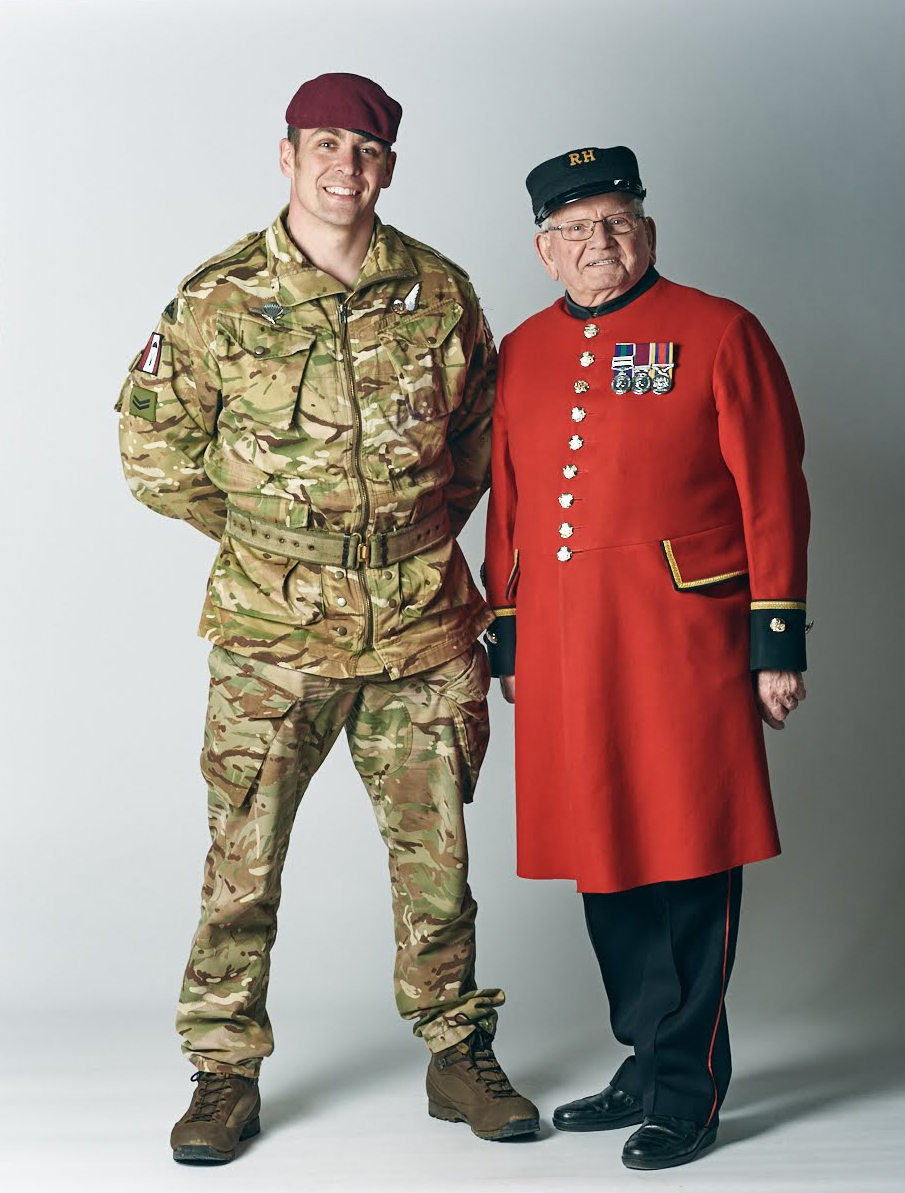
Dewi wasn’t yet ready to leave military life behind, so he joined the Royal Signals Territorial Army – he spent the next 11 years with them and was granted a commission. He said his final goodbye to the Army in 1988, having spent a total of 38 years and achieved the rank of Major.
After his Army service, Dewi worked as an engineer in Leicester and South Africa. He then lectured for a telecoms company in Nottingham before taking up a post as an instructor for the RAF for five years. Dewi also studied for a Bachelor of Science degree in electronics from the Open University, gaining his BSc qualification after five years of study.
Once he’d retired, Dewi bought a house in Llanelli Wales, where he sang with the male voice choir and worked as a volunteer driver taking pensioners out to the local swimming pool or on day trips. Then he relocated to Loughborough, to be nearer his children and grandchildren – who he enjoyed treating to a slap-up Sunday roast. Dewi also began working for the local Sue Ryder charity shop, testing their electrical equipment and still found time for regular visits to the gym, rewarding himself with visits to his favourite tea shop! During this time, he travelled extensively.
“The Royal Hospital is special”
Dewi had never considered coming to the Royal Hospital until a friend told him he was applying. He decided to do the same and loved his four-day taster stay. In February 2016, Dewi became a Chelsea Pensioner – and hasn’t looked back.
At the Royal Hospital, Dewi takes advantage of the many opportunities and enjoys the comradeship:
“You don’t have time to be lonely with so much to do,” he says, “It’s like being back in the Army with its military ethos. It’s the friendship and camaraderie that makes this place so special.”
